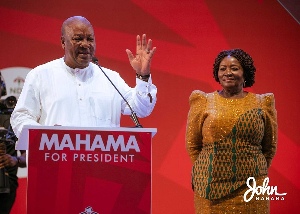Richster Amarfio, Secretary of the Ghana Tuna Association (GTA), has called for an Ocean Governance Policy that will bind all agencies with the mandate to manage the country’s marine space.
Mr Amarfio said, “we need a policy on Ocean Governance that brings all the varied interest together and ensure that the interest of Ghana, the environment, and the Ghanaian people are ultimately centre stage.”
He said this on Monday in an interview with the Ghana News Agency at Tema in response to the washing ashore of fishes, and melon-headed whales at Osu castle beach in the Greater Accra Region and Axim in the Western Region.
He said due to the varied interest, activities and influences in the sector, Ghana could properly govern the maritime space with an apex body.
He described the washing ashore of the fishes and whales as worrying, saying, “our lives are intrinsically linked to the environment, and the ocean being the largest environment, the moment we have reasons to believe the ocean is sick, we as a nation need to show concern. We have refused as a people to realize that the ocean needs to be properly cared for so it will in turn care for us”.
According to him, Ghana currently had an amorphous governance arrangement for the management of the ocean, a situation that made it difficult to hold someone accountable for such occurrences.
Mr Amarfio, throwing light on the mandates of the various institutions, said the Ghana Maritime Authority (GMA) which was established by an Act of Parliament, Ghana Maritime Authority (Amendment) Act 2011 (Act 825), was generally considered the landlord of the ocean and an appendage of the International Maritime Organization (IMO).
He noted that GMA had largely been responsible for the governance of the ocean and performed functions relating to maritime pollution, vessel safety, and crew training.
It is also the body mandated to issue a certificate to vessels (including fishing) upon inspecting of their International Oil Pollution Prevention, Radio Safety and Vessel Safety and equipment inter alia, among other responsibilities.
On the other hand, the Environmental Protection Agency (EPA) has a responsibility to ensure that activities would not interfere with the environment, including protecting the marine environment.
The GTA Secretary observed that the Fisheries Commission, which was established by the Fisheries Act, 2002 (Act 625) had a responsibility to manage all human activities concerning the fisheries resources of Ghana, both in the ocean and the riverine system.
The Fisheries Commission, he added had the mandate to regulate the types of fishing, when to fish, how to fish, and what methods to use, and how much efforts could be allowed based on available fisheries resources.
“They may refuse your activity and the Commission even have the power to demand a fisheries impact assessment where the project is believed to have a substantial impact on the fisheries resources.”
Other institutions that interact with the ocean he noted included the National Petroleum Authority (NPA) and the Ghana National Petroleum Commission (GNPC), which have joint responsibility for the hydrocarbon industry, while the National Communication Authority (NCA) is also responsible for the fibre-optic cables buried in the benthic of the ocean.
Mr Amarfio said it was about time the various institutions come together under one body to ensure the safety of the marine environment, adding that academia, civil society, the media and politicians must take a serious interest in the activities of the ocean to help safeguard it for the benefit of everyone.
Business News of Monday, 5 April 2021
Source: GNA













